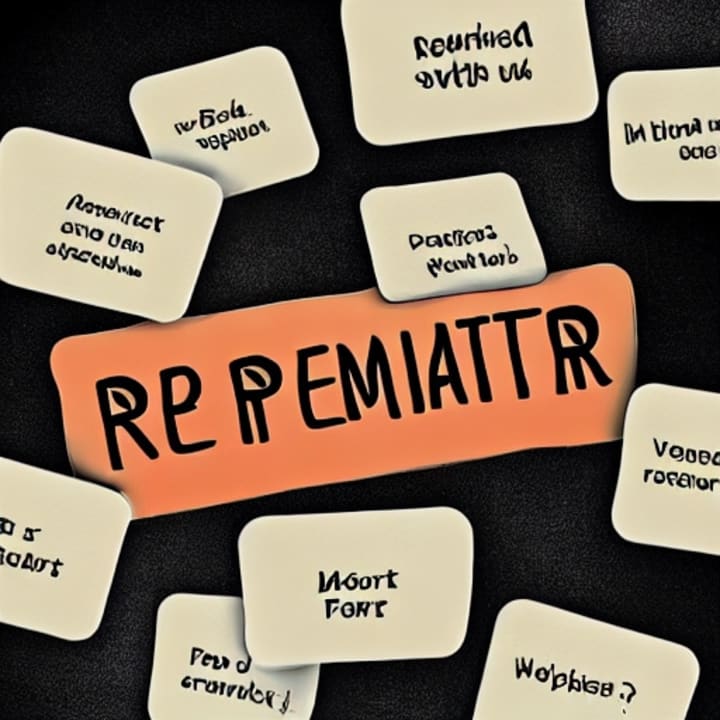Inside the Mind of a Recruiter: Strategies for Success
Art of Recruiting

Recruiting is a complex and multifaceted profession that requires a unique set of skills and strategies to succeed. Understanding what goes on inside the mind of a recruiter can help both job seekers and hiring managers navigate the recruitment process more effectively.
Here are some strategies for success that recruiters use:
Building Relationships:
Successful recruiters understand that recruiting is not just about finding the right candidate for a specific job. It is about building relationships with potential candidates over time, so when the right opportunity arises, they can quickly identify and engage with the right person.
Building relationships is a crucial aspect of any business, and it is particularly important in the recruitment industry. Successful recruiters understand that recruitment is not just about filling open positions, but also about building long-term relationships with candidates and clients.
Here are some strategies for building relationships in recruitment:
- Personalization: Recruiters need to take the time to get to know their clients and candidates on a personal level. By understanding their needs, preferences, and goals, recruiters can provide more personalized service and better match candidates with the right opportunities.
- Communication: Effective communication is essential in building relationships. Recruiters need to keep candidates and clients informed throughout the recruitment process, providing regular updates and feedback. They also need to be responsive to their clients' and candidates' needs and concerns.
- Trust: Building trust is critical in any relationship, and recruiters need to work hard to establish trust with their clients and candidates. They need to be honest, transparent, and reliable, delivering on their promises and following through on commitments.
- Networking: Networking is another essential aspect of building relationships in recruitment. Recruiters need to attend industry events, connect with potential candidates and clients on social media, and leverage their existing network to build new relationships.
- Follow-up: Following up is key to building lasting relationships. Recruiters need to stay in touch with their clients and candidates even after the recruitment process is complete. By staying in touch, recruiters can identify new opportunities, provide ongoing support and advice, and strengthen the relationship over time.
By focusing on building relationships, recruiters can establish a strong reputation, attract top talent, and build a loyal client base that will provide ongoing business opportunities.

Active Listening:
Recruiters need to be good listeners to identify the unique skills, experience, and values that each candidate brings to the table. By actively listening and understanding a candidate's needs and preferences, recruiters can better match them with the right opportunity.
Active listening is a critical skill for recruiters to master. In the recruitment process, active listening means paying close attention to what candidates are saying, both verbally and nonverbally, and using that information to better understand their needs, goals, and preferences.
Here are some strategies for active listening in recruitment:
- Eliminate Distractions: Active listening requires full attention and focus. Recruiters should eliminate any distractions, such as phone calls or emails, during the recruitment process to ensure that they are fully present and engaged with the candidate.
- Ask Open-Ended Questions: Open-ended questions encourage candidates to share more information about their skills, experience, and goals. Recruiters should ask questions that allow candidates to elaborate on their responses, rather than simply answering yes or no.
- Paraphrase and Summarize: Paraphrasing and summarizing what the candidate has said shows that the recruiter is actively listening and helps to clarify any misunderstandings. Recruiters should restate what the candidate has said in their own words to confirm understanding.
- Nonverbal Cues: Recruiters should pay attention to the candidate's nonverbal cues, such as facial expressions, body language, and tone of voice. These cues can provide valuable insights into the candidate's emotions, attitudes, and level of engagement.
- Empathy: Empathy is the ability to understand and share the feelings of another person. Recruiters should strive to put themselves in the candidate's shoes and understand their perspective. This helps to build rapport and trust with the candidate, and makes them more likely to open up and share their thoughts and feelings.
By mastering the art of active listening, recruiters can better understand the needs and preferences of candidates, provide personalized service, and build stronger relationships with both candidates and clients.
Research:
Recruiters are always looking for the latest industry trends and best practices to stay ahead of the competition. They conduct thorough research on job descriptions, company culture, and the latest recruitment tools to stay on top of their game.
Research is a critical component of successful recruiting. In the recruitment industry, research involves staying up-to-date on industry trends, understanding job market conditions, and identifying the most effective recruitment tools and strategies.
Here are some strategies for conducting research in recruitment:
- Industry News and Publications: Recruiters should stay informed about the latest news and trends in their industry by reading relevant publications and attending industry events. This helps recruiters to stay up-to-date on the latest developments and identify emerging trends.
- Online Resources: The internet provides a wealth of resources for recruiters, including job boards, social media platforms, and online communities. Recruiters can use these resources to find potential candidates, research job descriptions, and gather information about companies and industries.
- Data Analytics: Data analytics can provide valuable insights into recruitment trends and help recruiters to identify the most effective recruitment strategies. Recruiters can use data analytics tools to track key performance indicators such as time-to-hire, candidate quality, and retention rates.
- Competitor Analysis: Competitor analysis involves researching other recruitment firms or companies that compete in the same industry. By understanding the strategies and tactics used by competitors, recruiters can identify opportunities for improvement and differentiation.
- Candidate Feedback: Feedback from candidates can provide valuable insights into the effectiveness of recruitment strategies. Recruiters should collect feedback from candidates about the recruitment process and use this feedback to improve the process over time.
By conducting research, recruiters can stay up-to-date on the latest trends, identify emerging opportunities, and improve their recruitment strategies over time. This helps recruiters to better serve their clients and candidates, and ultimately achieve better outcomes.
Networking:
Networking is an essential part of a recruiter's job. They attend conferences, industry events, and job fairs to meet potential candidates and build their network of contacts.
Networking is a critical skill for recruiters to master. In the recruitment industry, networking involves building relationships with potential candidates, clients, and industry peers to generate business opportunities and stay informed about industry trends.
Here are some strategies for effective networking in recruitment:
- Attend Industry Events: Attending industry events, such as conferences, trade shows, and seminars, is a great way to meet potential clients and candidates, and to stay informed about industry trends. Recruiters should take advantage of these opportunities to build relationships and establish themselves as experts in their field.
- Use Social Media: Social media platforms such as LinkedIn, Twitter, and Facebook provide a valuable tool for recruiters to connect with potential clients and candidates. Recruiters should use these platforms to build their network, share industry news and insights, and engage with their audience.
- Leverage Referrals: Referrals are an excellent source of new business in the recruitment industry. Recruiters should leverage their existing network to generate referrals and ask satisfied clients and candidates to refer their colleagues and friends.
- Participate in Industry Groups: Joining industry groups and associations provides a valuable opportunity to connect with other professionals in the field and stay informed about industry trends. Recruiters should actively participate in these groups, contribute to discussions, and offer insights and advice to establish themselves as experts in their field.
- Follow Up: Following up is key to building lasting relationships. Recruiters should stay in touch with their contacts even after the initial connection has been made, offering ongoing support and advice, and looking for opportunities to collaborate or provide value.
By mastering the art of networking, recruiters can build a strong reputation, attract top talent, and generate new business opportunities.

Communication:
Effective communication is crucial in the recruitment process. Recruiters need to be clear and concise in their communication with candidates and hiring managers. They need to manage expectations and provide timely feedback throughout the recruitment process.
By understanding the strategies that successful recruiters use, job seekers and hiring managers can work more effectively with recruiters and increase their chances of success.
About the Creator
Mohamed Azharudeen
As a writer, I weave words into stories, crafting worlds to captivate readers and evoke emotions that linger long after the last page.






Comments
There are no comments for this story
Be the first to respond and start the conversation.